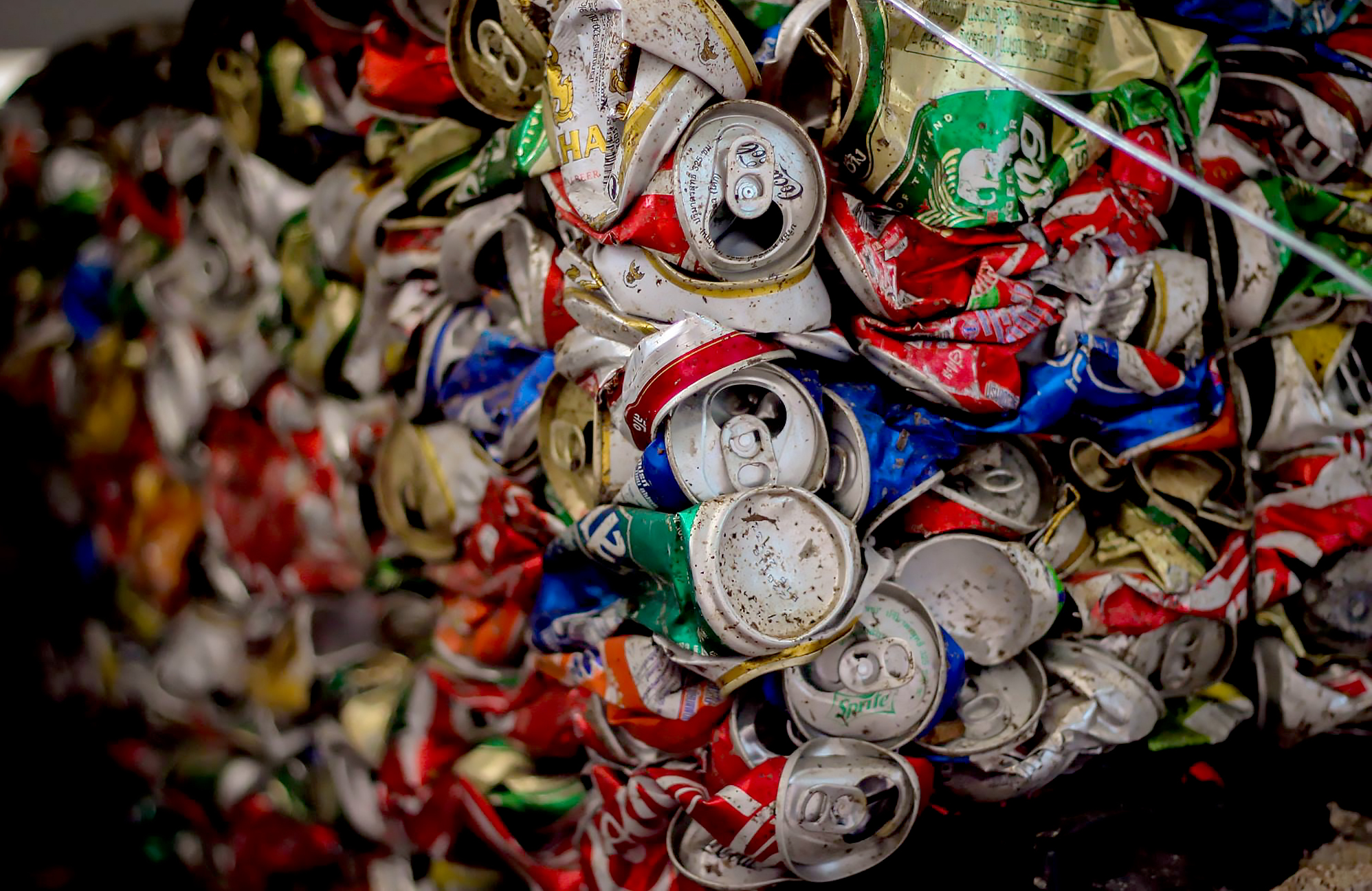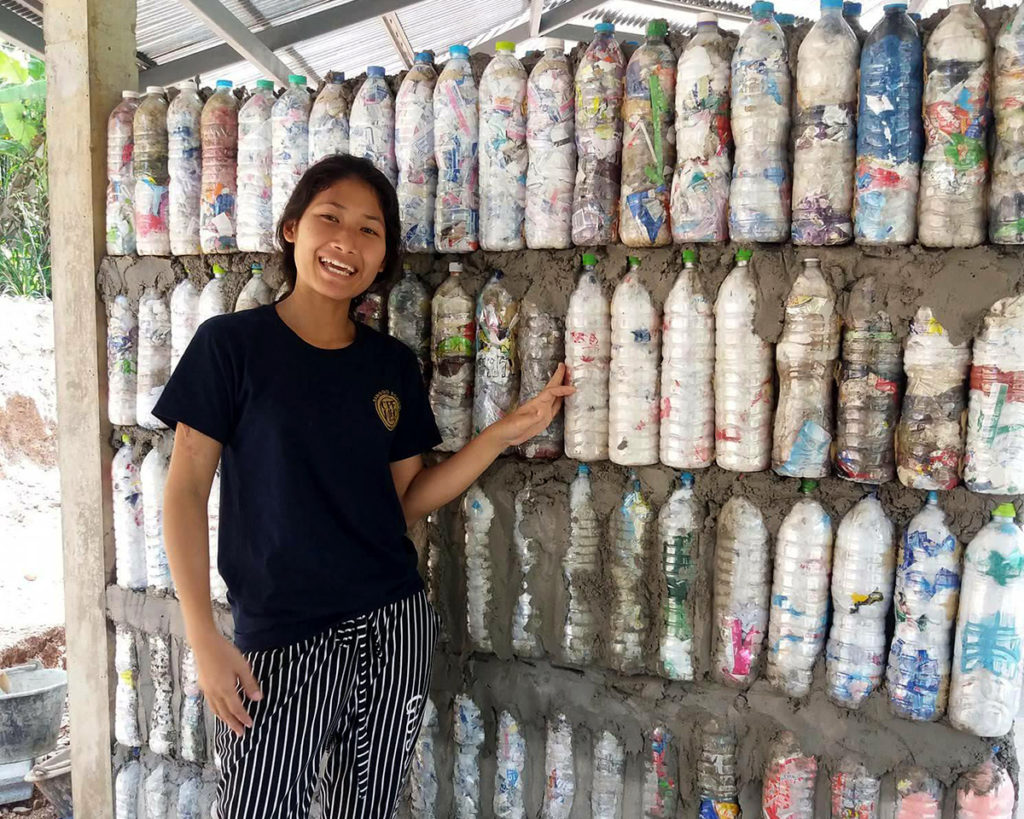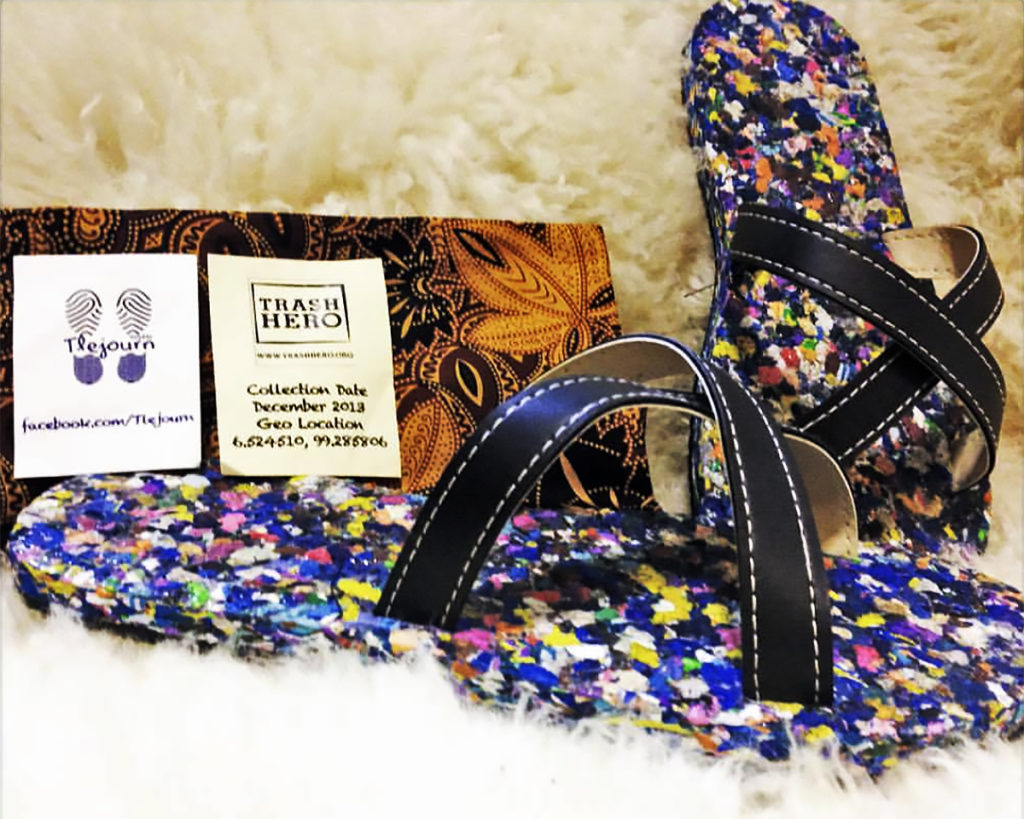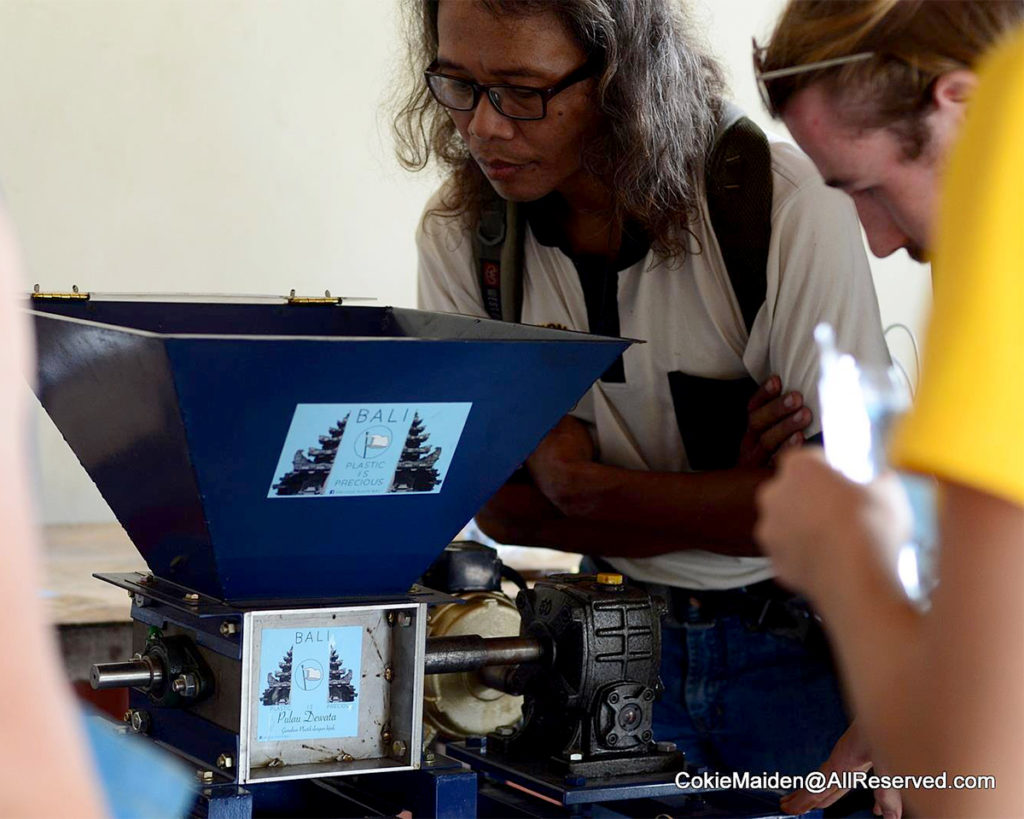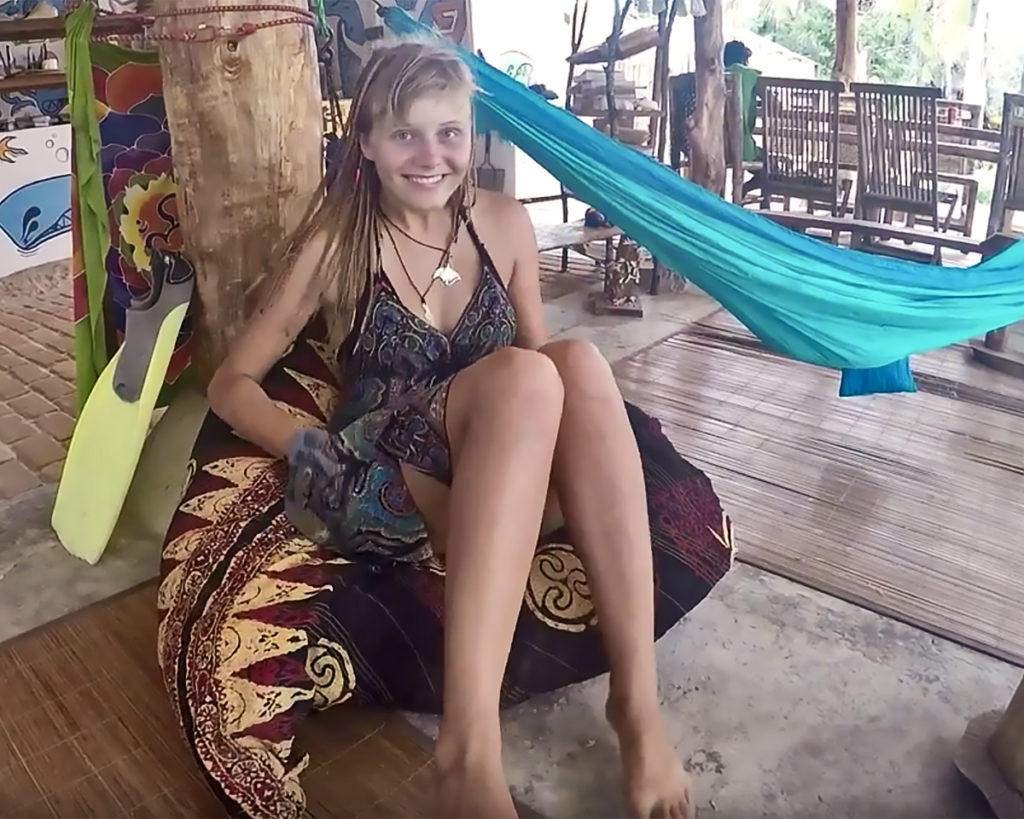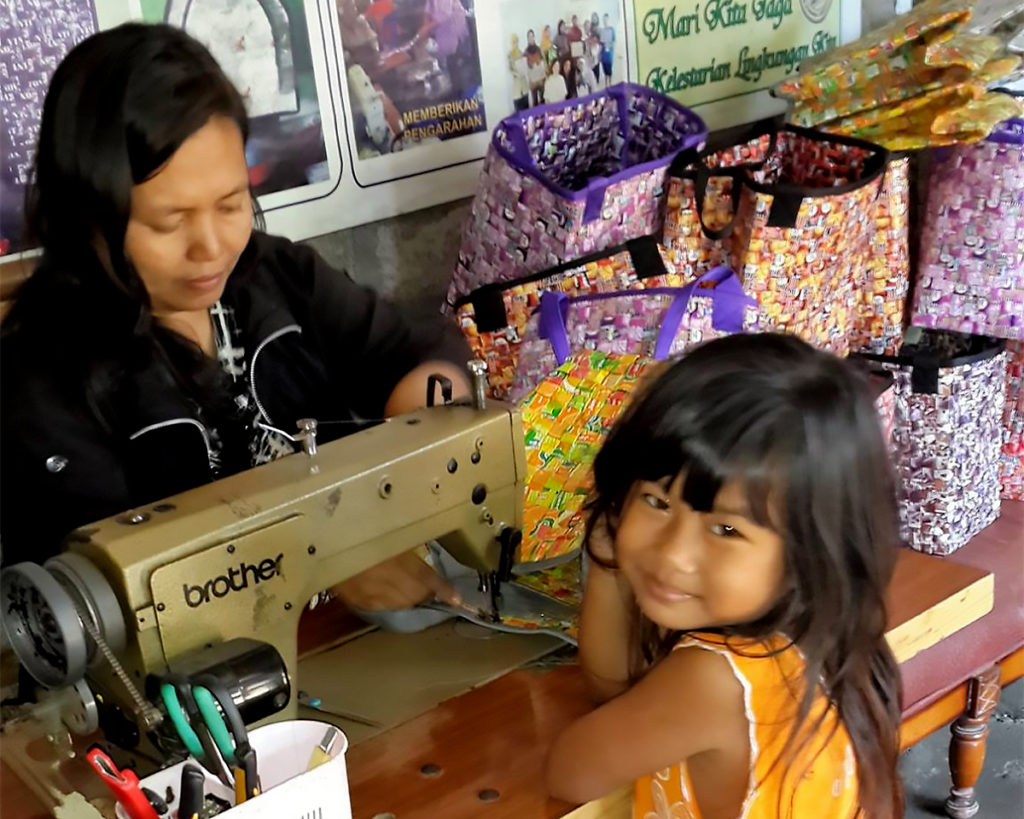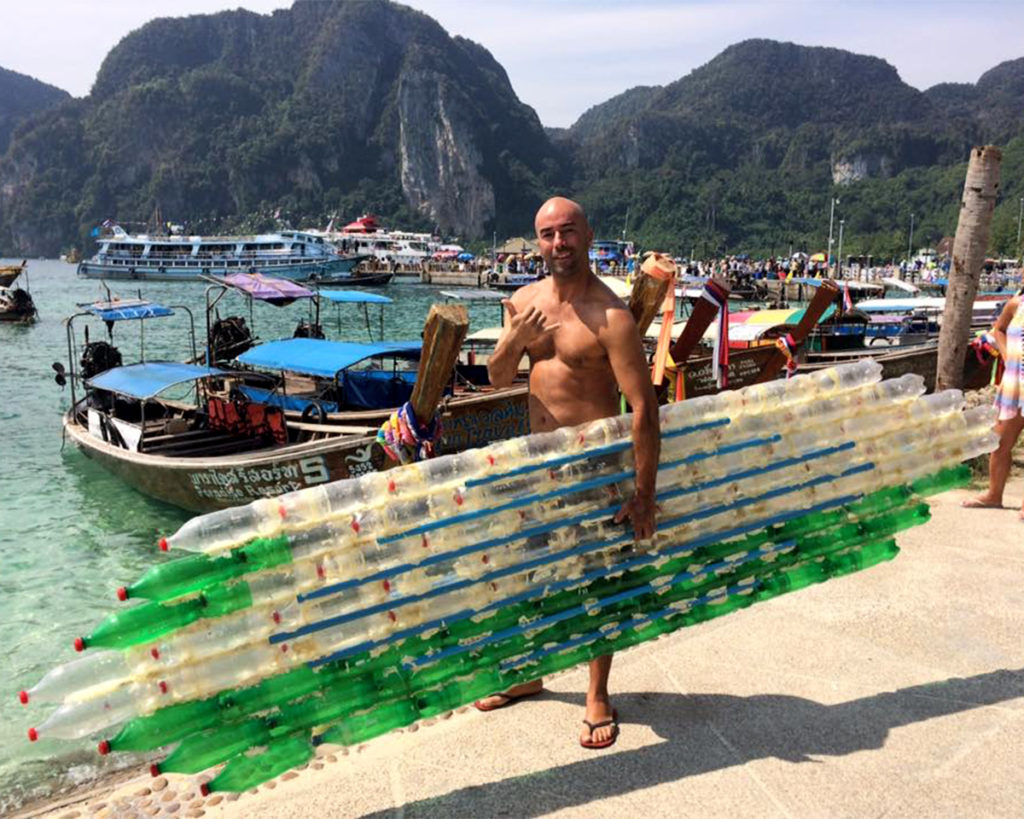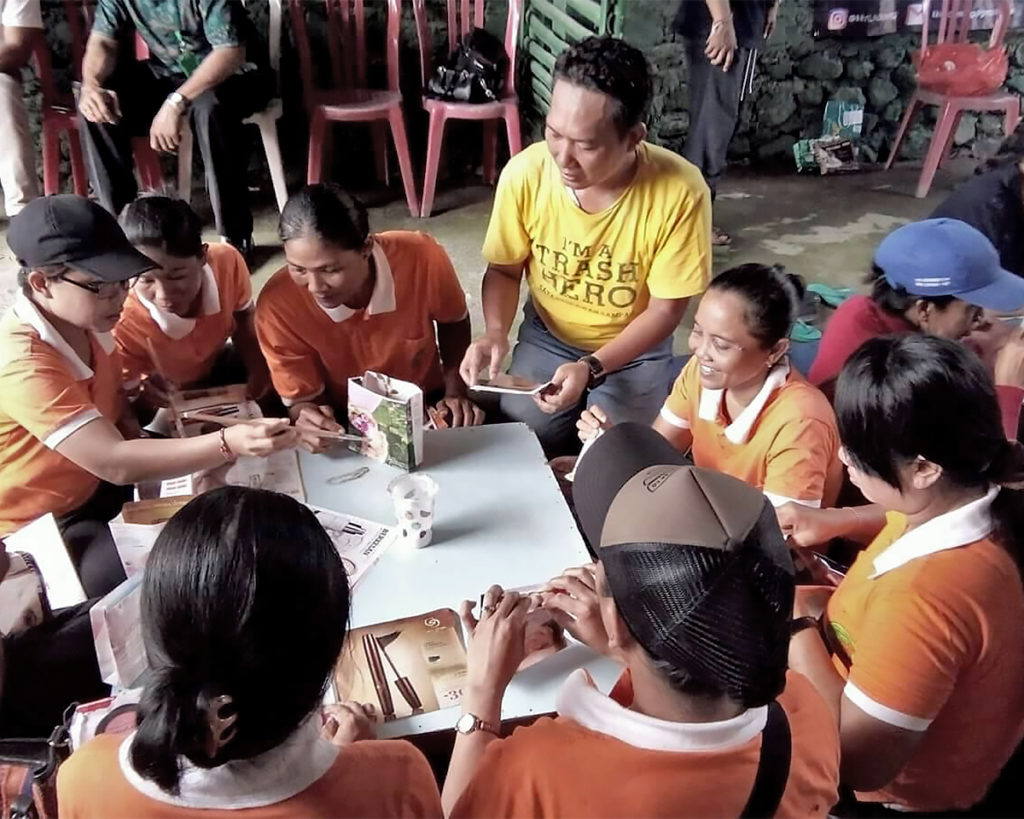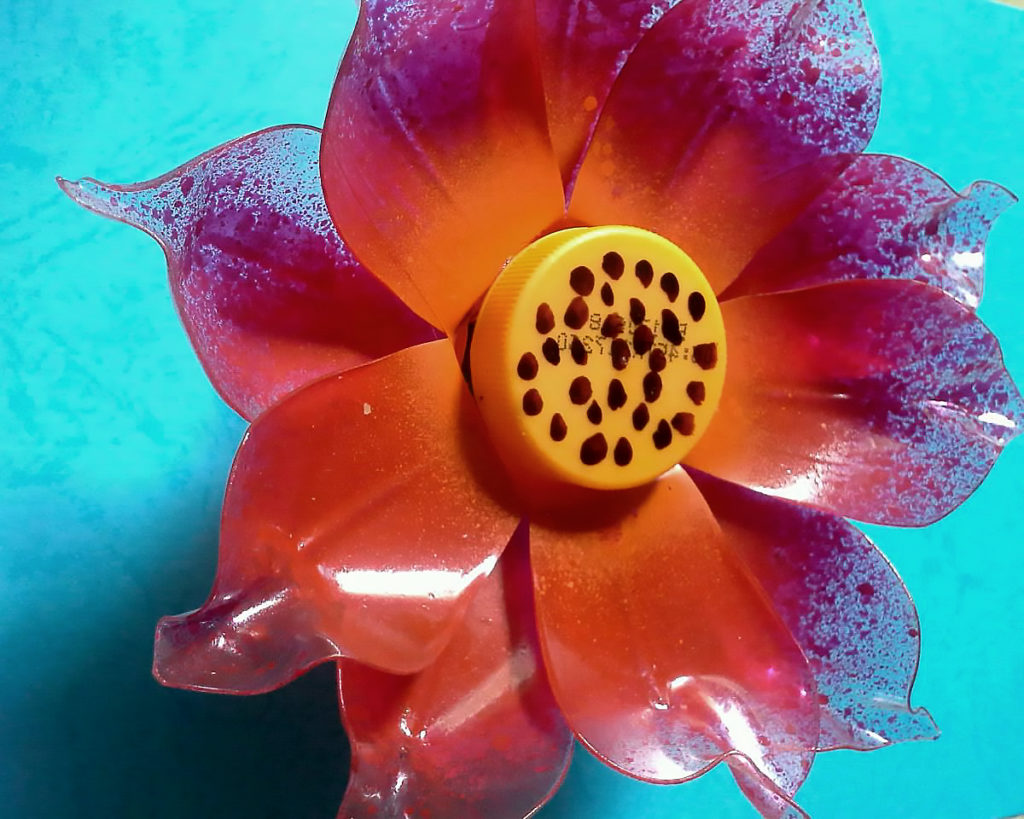Where does the trash go?
This is what everyone wants to know. It’s the most important question, and one we discuss during and after every Trash Hero cleanup.
Wherever possible, our volunteers separate the collected trash and pass along the recyclable material to the local municipality or professional waste management companies. However, in some countries, there is barely any recycling; and worldwide, landfill or burning remain the default options for non-recyclable and non-compostable waste.
In several locations, however, our chapters have come up with creative solutions to avoid such outcomes. Collected trash is used to create new products such as shoes made from old flip flops, paddle boards, or even bean bags. We list a few examples below.
One of the most efficient and low resource methods to deal with the trash is eco bricks (www.ecobricks.org). Filling collected plastic bottles with soft non-recyclables produces a solid and versatile construction material. People use eco bricks to build houses, furniture, or garden seating areas.
What happens to the trash? is also a wider question we want you to ask yourself on a daily basis. It should become an idea that will stay with you, and influence your actions – not only when you throw things away, but even before you use them.
ECOBRICKS
An ecobrick is a plastic bottle packed solid with non-biological waste to make a reusable building block. Best of all, you don’t need any fancy machines, special skills, engineers or politicians to get started.
Our Trash Hero Thailand chapters are currently producing and donating ecobricks to build a new school building at the Bamboo School Family, an orphanage in Kanchanaburi province. In Indonesia, there are many community projects using ecobricks. Through a network of workshops, more and more people are being converted to using this method to make something useful out of their trash rather than openly burning it.
Website: www.ecobricks.org
RECYCLED FLIP FLOPS AND SHOES
Social enterprise Tlejourn started up through a “donation” of 80,000 broken flip-flops collected on beach cleanups by Trash Hero Thailand volunteers. They developed a simple, low resource process to shred and reform the shoes into flexible material that can be shaped into soles, and even soft surface play mats.
The shoes are produced by hand by local villagers in Pattani, and can be purchased online or via Facebook. We continue to supply them with raw materials, and donations of old shoes from other sources are always welcome.
There is a nice video showing the production process.
PRECIOUS PLASTIC MACHINE
Precious Plastic is a global community of tens of thousands of people, exchanging knowledge, tools and techniques to recycle plastic. Machine design and building instructions are open source and free. So everyone can start (yes, you too!). Trash Hero Ubud, with volunteer Marius, led the startup of Precious Plastic Bali, building a machine to shred plastic waste for reuse and recycling. Read the story on Facebook.
POLYSTYRENE BEAN BAGS
Trash Hero Gili Meno started and Trash Hero Koh Lanta continue to collect and separate polystyrene foam trash on their weekly beach cleanups. They then use a shredding machine to produce “beads” that are used to stuff bean bags and pillows. The cases are produced by local women on the island.
Watch a YouTube video of how it’s done.
RECYCLED BAGS
Our friends from Peduli Alam in Bali, Indonesia make products such as bags, wallets, and trash cans out of single use plastic purchased from villagers, employing local seamstresses to do the work. The products are sold online and the income is used to fund their excellent waste collection program on the island.
Trash Hero has collaborated with Peduli Alam in many ways.
STAND-UP PADDLE (SUP) BOARDS
In Bangkok, Thailand, our partner and supporter Starboard, is working on a new “eco board” made of recycled material. Trash Hero Thailand provided them with expanded polystyrene (EPS) recovered from beach cleanups and they are developing a method to recycle it directly into new boards for SUP and windsurf use. More info on their website.
Meanwhile, The Whale Company make handmade stand-up paddle boards from discarded plastic bottles, which they use to paddle in different locations to raise awareness about plastic pollution. In 2017 – 18 they were in Thailand and visited several Trash Hero chapters and produced new SUP boards with collected plastic bottles.
UPCYCLING PAPER AND PLASTIC
Trash Hero Candidasa volunteers Ida Bagus and Budi work with local schools and community groups to upcycle trash. They hold art and craft workshops to teach people how to make beautiful and valuable products, such as bowls, bags, vases and other decorative items, out of discarded plastic packaging and paper.
These skills can then be used to create income, and reduce waste being burned or sent to landfill.
Contact them at candidasa@trashhero.org.
ART FROM TRASH
On a smaller scale, many chapters, and even individual volunteers, work with local artists or make their own art or craft from trash we collect. We have seen socks made out of fishing net, fans made with plastic straws, art using cigarette lighters, and many more!
While the impact may be small, each represents an individual commitment to reduce waste and encourages closed loop thinking on resources.
Despite all these interesting possibilities, a certain amount of the collected trash from our weekly cleanups still gets picked up by the local municipality and brought to the landfill. However, when participants realise this, we notice that they start to think about their own consumption and behaviour – and this is the first, very important step to lasting change.

